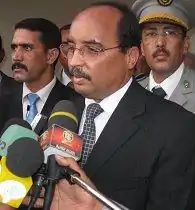The Mauritania Portal - بوابة موريتانيا
Mauritania, officially the Islamic Republic of Mauritania (Arabic: الجمهورية الإسلامية الموريتانية), is a sovereign country in Northwest Africa. It is bordered by the Atlantic Ocean to the west, Western Sahara to the north and northwest, Algeria to the northeast, Mali to the east and southeast, and Senegal to the southwest. By land area, Mauritania is the 11th-largest country in Africa and the 28th-largest in the world, and 90% of its territory is situated in the Sahara. Most of its population of approximately 4.3 million lives in the temperate south of the country, with roughly one-third concentrated in the capital and largest city, Nouakchott, located on the Atlantic coast. The country's name derives from the ancient Berber kingdom of Mauretania, located in North Africa within the ancient Maghreb. Berbers occupied what is now Mauritania beginning in the third century AD. Arabs under the Umayyad Caliphate conquered the area in the late seventh century, bringing Islam, Arab culture, and the Arabic language. In the early 20th century, Mauritania was colonized by France as part of French West Africa. It achieved independence in 1960, but has since experienced recurrent coups and periods of military dictatorship. The most recent coup, in 2008, was led by General Mohamed Ould Abdel Aziz, who won subsequent presidential elections in 2009 and 2014. He was succeeded by Mohamed Ould Ghazouani following the 2019 elections, which were considered Mauritania's first peaceful transition of power since independence. Mauritania is culturally and politically part of the Arab world; it is a member of the Arab League and Arabic is the official language. The official religion is Islam, and almost all inhabitants are Sunni Muslims. Despite its prevailing Arab identity, Mauritanian society is multiethnic; the Bidhan, or so-called "white moors", make up 30% of the population, while the Haratin, or so-called "black moors", comprise 40%. Both groups reflect a fusion of Arab-Berber ethnicity, language, and culture. The remaining 30% of the population comprises various sub-Saharan ethnic groups. Despite an abundance of natural resources, including iron ore and petroleum, Mauritania remains poor; its economy is based primarily on agriculture, livestock, and fishing. Mauritania is generally seen as having a poor human rights record, and is particularly censured for the perpetuation of slavery as an institution within Mauritanian society, with an estimated 10%-20% of Mauritanians in bondage in 2012, despite slavery's abolition in 1981 and criminalization of the ownership of slaves outright in 2007. (Full article...) Selected article -Gorgol (Arabic: ولاية كركول) is a region in southern Mauritania. Its capital is Kaédi and the Gorgol River forms parts of the landscape. Other major cities/towns include Mbout and Maghama. The region borders the Mauritanian regions of Brakna and Assaba to the north, the Mauritanian region of Guidimaka to the south-east and Senegal to the south-west. The Senegal River runs along the region's border with Senegal. As of 2013, the population of the region was 335,917, compared to 310,656 in 2011. There were 48.23 per cent females and 51.77 per cent males. As of 2008, the activity rate was 48.90 and economic dependency ratio was 1.24. As of 2008, the literacy rate for people aged 15 years and over was 40.50. The location government is headed by an elected district representative, while the elections for the local government are conducted every five years. On account of the political instability, the last elections were held in 2006. (Full article...)
| ||||||||||||||||||||||||||||||||||||||||||||||||||||||||||||||||
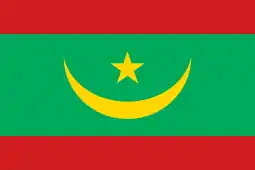 |
You are invited to participate in WikiProject Mauritania, a WikiProject dedicated to developing and improving articles about Mauritania. |
Topics in Mauritania
Cities and towns
| Rank | Name | Region | Pop. | ||||||
|---|---|---|---|---|---|---|---|---|---|
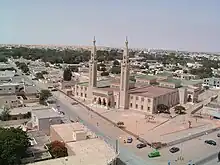 Nouakchott  Nouadhibou |
1 | Nouakchott | Nouakchott | 1,195,600 |  Kiffa | ||||
| 2 | Nouadhibou | Dakhlet Nouadhibou | 118,167 | ||||||
| 3 | Kiffa | Assaba | 60,005 | ||||||
| 4 | Néma | Hodh Ech Chargui | 57,000 | ||||||
| 5 | Rosso | Traza | 51,026 | ||||||
| 6 | Kaédi | Gorgol | 45,539 | ||||||
| 7 | Zouérat | Tiris Zemmour | 44,469 | ||||||
| 8 | Sélibaby | Guidimaka | 26,420 | ||||||
| 9 | Atar | Adrar | 25,190 | ||||||
| 10 | Aïoun | Hodh El Gharbi | 22,796 | ||||||
Communes
Associated Wikimedia
The following Wikimedia Foundation sister projects provide more on this subject:
-
 Commons
Commons
Free media repository -
 Wikibooks
Wikibooks
Free textbooks and manuals -
 Wikidata
Wikidata
Free knowledge base -
 Wikinews
Wikinews
Free-content news -
 Wikiquote
Wikiquote
Collection of quotations -
 Wikisource
Wikisource
Free-content library -
 Wikiversity
Wikiversity
Free learning tools -
 Wikivoyage
Wikivoyage
Free travel guide -
 Wiktionary
Wiktionary
Dictionary and thesaurus
-
 List of all portals
List of all portals -

-

-

-

-

-

-

-

-

-
 Random portal
Random portal -
 WikiProject Portals
WikiProject Portals

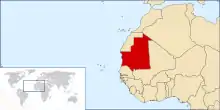

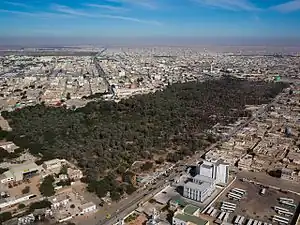
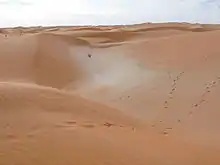


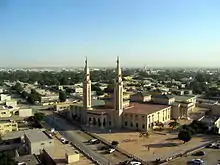

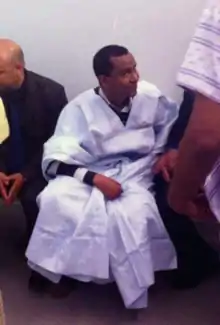

.jpg.webp)

